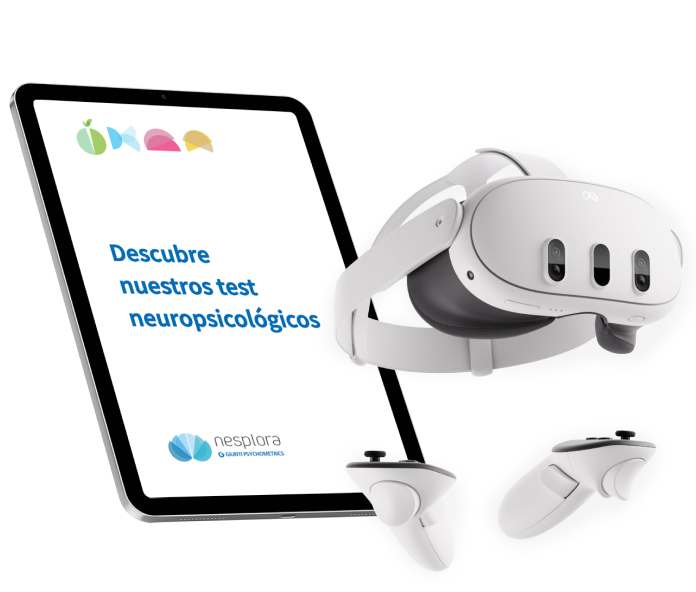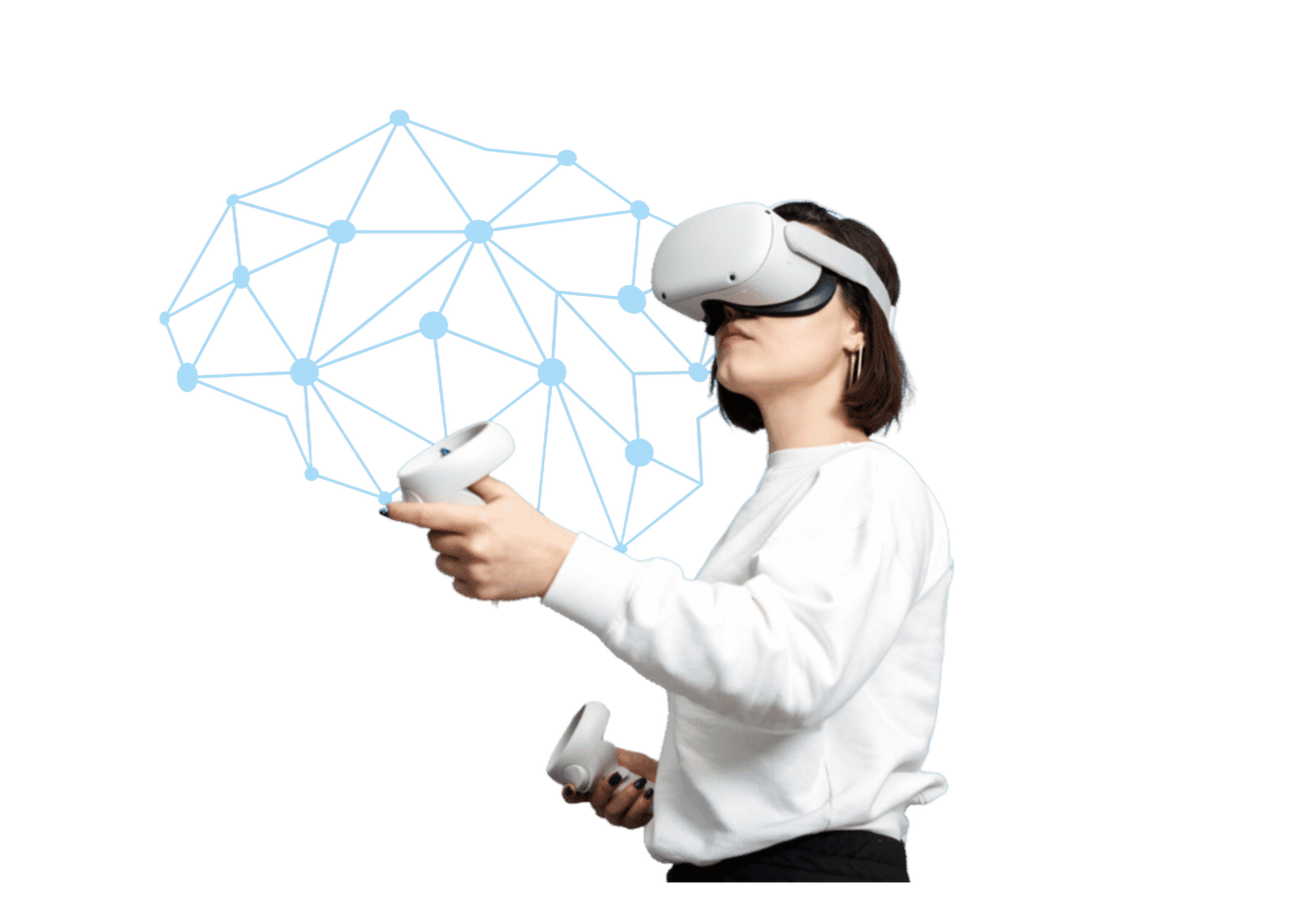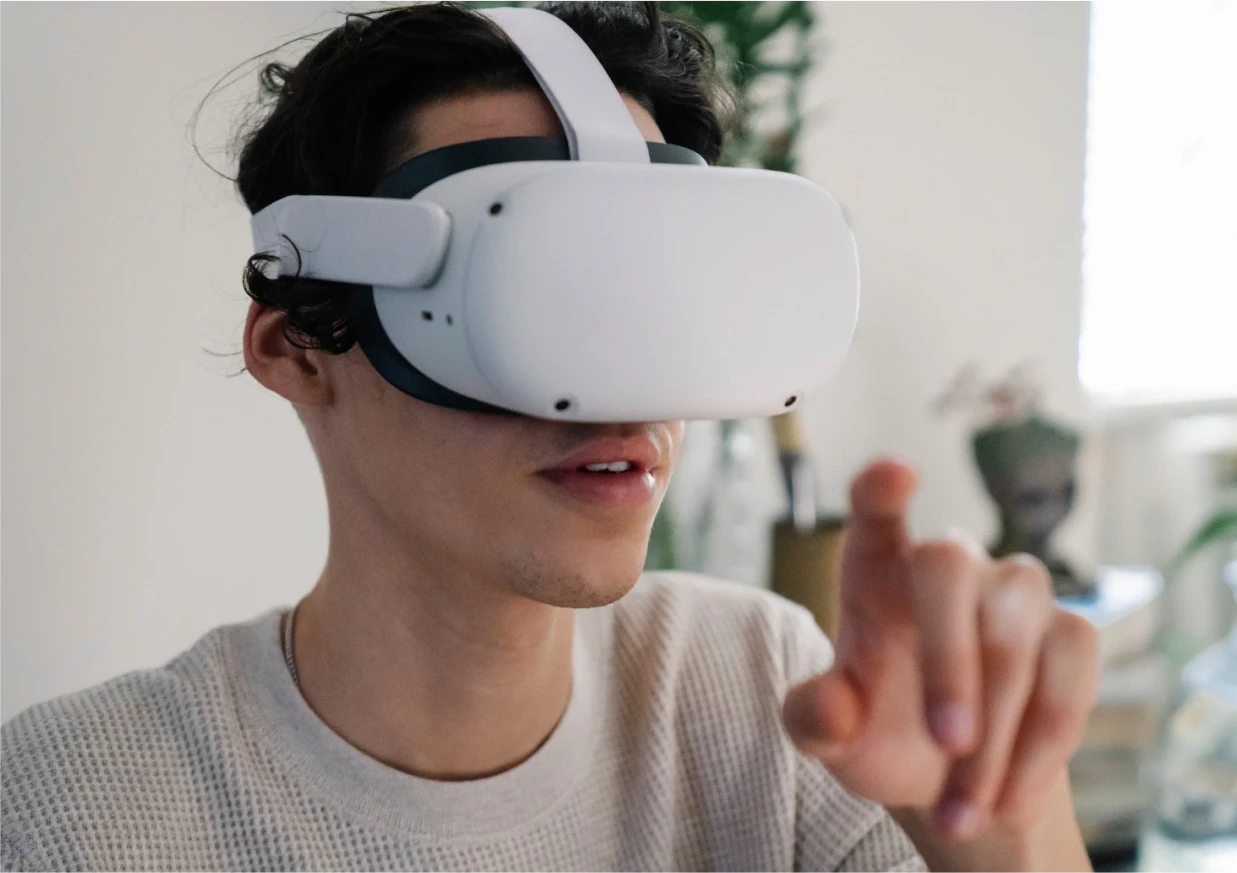Neuropsychological Tests
Discover Nesplora's neuropsychological tests
CPT
Assessment
Selective
Attention
Test
Sustained
Attention Test
ADHD
Test
Executive
Functions
Test
Neuropsychological tests are tools used to study cognitive capacities. They make it possible to detect alterations related to neurological conditions, developmental disorders, or other situations affecting the individual.
These tests provide detailed information that helps professionals better understand each case, make accurate diagnoses, and design appropriate intervention strategies.


All of our neuropsychological instruments in one platform
Why improve traditional testing?
For years, neuropsychological assessments relied on paper-based tests or highly controlled environments. While useful, these methods do not always reflect how a person behaves in everyday life.
Another limitation is evaluator bias, which can interfere with results.
The role of virtual reality
Virtual reality changes this completely. By recreating real-life situations in a controlled way, VR testing minimizes evaluator bias and ensures ecological validity.
At Nesplora, we have integrated virtual reality into our assessments to measure key functions such as attention, memory, and executive functioning—providing data that is both more accurate and closer to real-life behavior.
Advantages of neuropsychological tests with virtual reality
More accurate and reliable assessments
Ecological validity of the results: We use virtual reality to simulate everyday situations, achieving a high degree of realism, which allows assessments to more accurately reflect user behavior in their usual environment. All of this leads to a more accurate and reliable evaluation.
Collection of representative data
Unique variables: With VR, we can measure specific variables such as motor activity, visuospatial memory, learning potential, and attentional focus quality. These metrics provide a more complete picture of cognitive functioning.
Time efficiency
Automated processes: Thanks to automation, results are available immediately after completing the tests, optimizing time for both professionals and examinees.
Comprehensive evaluation
360° utility: Although each Nesplora test focuses on a specific cognitive function, it also enables a broader and more comprehensive assessment. This helps identify additional information that was not initially being assessed.
Immersive, bias-free user experience
Full immersion: Virtual reality offers a highly engaging environment that improves participation and promotes motivation during assessments, resulting in more realistic and useful evaluations.
Objective, bias-free testing: All assessments are based on fully quantitative measures, eliminating professional evaluator bias. With VR, greater objectivity in results is achieved.
Frequently Asked Questions
Below, we provide the answers to the most frequently asked questions about the neuropsychological tests with Nesplora.

What are Nesplora's neuropsychological tests?
Nesplora’s neuropsychological tests are advanced assessment tools that use virtual reality to evaluate cognitive functions. They are available for both children and adults, and each test is designed for a specific age range and cognitive domain.
The current portfolio includes:
- Nesplora Attention Kids Aula: evaluates attention, impulsivity, and motor activity in children and adolescents (6–16 years).
- Nesplora Attention Kids Aula School: A different report, including personalized psychoeducational recommendations
- Nesplora Attention Adults Aquarium: designed for adults (16–90 years), measuring attention, memory, and cognitive flexibility.
- Nesplora Executive Functions Ice Cream: assesses executive functions such as planning, working memory, cognitive flexibility, and processing speed (8–80 years).
- Nesplora Memory Suite: focused on memory assessment (12–90 years), useful for supporting diagnoses of memory difficulties and possible dementias.
What do our neuropsychological tests measure?
Each test is focused on key cognitive functions, including:
- Sustained and selective attention
- Impulsivity and inhibitory control
- Working memory and visuospatial memory
- Executive functions such as planning, flexibility, and processing speed
- Learning potential and motor activity
Together, these measurements provide a comprehensive understanding of the individual’s cognitive functioning.
Are neuropsychology assessment tools accurate?
Yes. Nesplora assessments are based on normative studies with representative samples, ensuring high levels of sensitivity and specificity. For example, Nesplora Attention Kids Aula correctly identifies children with ADHD in 95.2% of cases and correctly rules out those without ADHD in 91.9% of cases. This makes our tools reliable for clinical, educational, and research contexts.
How long does Nesplora's neuropsychology testing take?
Most assessments take between 20 and 25 minutes. Thanks to automated processes, results are available immediately after the test is completed, optimizing time for both professionals and patients.
How are the results displayed in Nesplora's neuropsychology testing?
Once the test is completed, the professional receives a detailed report that compares the individual’s performance to normative data. The results are presented in a clear and structured format, allowing professionals to support diagnosis and design tailored intervention strategies.